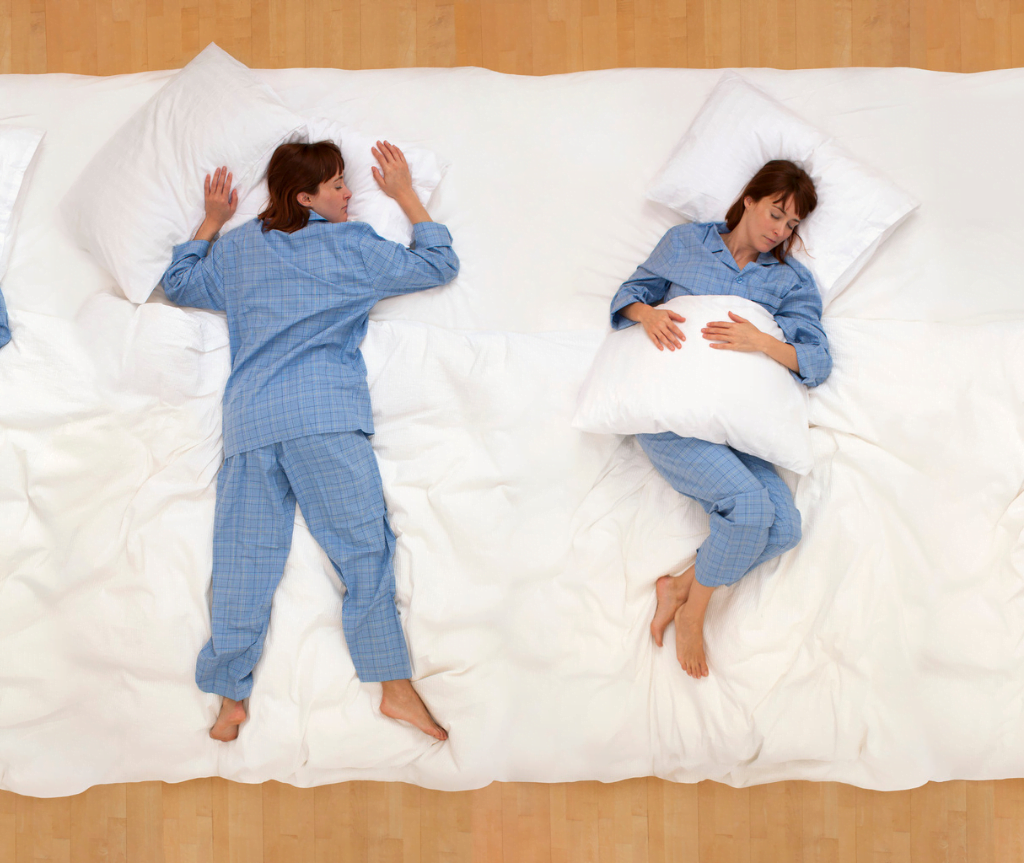You know that feeling — lying in bed, eyes wide open, replaying tomorrow’s to-do list for the third time. The clock glows 2:13 a.m. You promise yourself you’ll go to bed earlier tomorrow, but morning comes, and you’re running on caffeine and hope.
Sound familiar? You’re not alone. Many of us have normalised exhaustion, brushing it off as part of modern life. But the effects of sleep deprivation go far beyond feeling tired — they quietly reshape how your body and mind work, from your hormones to your emotions.
Let’s look at what really happens when your body doesn’t get the rest it needs — and how to find your way back to restorative sleep.
How Sleep Deprivation Affects Your Body
Sleep isn’t a pause button; it’s your body’s nightly repair workshop. Miss a few nights, and things start to break down in ways you might not notice at first.
1. Your Immune System Loses Its Edge
Ever notice how you catch a cold after a string of late nights? That’s no coincidence. While you sleep, your body releases protective proteins called cytokines — your immune soldiers. Without enough rest, they don’t get deployed in full force.
Result: you get sick more easily, heal more slowly, and feel run-down even after “resting.”
2. Your Risk of Chronic Diseases Rises
When sleep is cut short, your hormones and metabolism go off-track. Studies show that people who regularly sleep fewer than seven hours have higher risks of obesity, diabetes, and heart disease.
It’s not just tiredness — it’s biology. Lack of sleep disrupts insulin sensitivity, drives inflammation, and contributes to higher blood pressure than necessary.
3. Your Strength and Energy Dip
Think of a good night’s sleep as invisible training. Without it, muscle repair slows, coordination declines, and even simple workouts become more challenging. One sleepless night won’t undo your progress — but weeks of poor sleep? You’ll feel it in every movement.
4. Your Focus and Reflexes Blur
Driving or working while sleep-deprived feels eerily similar to being slightly drunk. Reaction time slows, judgment clouds, and focus slips. Whether you’re at the wheel or at work, fatigue makes everything riskier.
5. Your Hormones Fall Out of Sync
Sleep helps maintain the balance of key hormones, including cortisol, leptin, and insulin. When you skimp on rest, cortisol (your stress hormone) stays high, and leptin (your fullness hormone) drops. Suddenly, you’re hungrier, more anxious, and craving sugar at midnight.
How Sleep Deprivation Affects Your Mind
Your brain craves sleep as much as your body does. It uses that time to file away memories, process emotions, and eliminate waste products that accumulate during the day.
When you don’t sleep, your brain never gets to tidy up — and chaos creeps in.
1. Your Mood Shifts
You might wake up edgy or unusually emotional. Tiny frustrations — the spilt coffee, the slow Wi-Fi — hit harder than they should. That’s because lack of sleep weakens the part of your brain that regulates emotions, while amplifying the stress response.
2. Your Stress Feels Louder
Without deep rest, cortisol levels stay elevated, making your body feel “on alert” all day. Over time, this chronic tension can feed anxiety and burnout.
3. Your Thinking Slows
When you’re short on sleep, focus, memory, and problem-solving all take a hit. Research has found that sleeping six hours a night for a week can have a similar effect on your brain as not sleeping for two whole nights. You think you’re coping — until you can’t find your keys for the third time in one morning.
4. Your Drive and Joy Diminish
When rest is missing, dopamine — your motivation messenger — drops. Things you usually love start to feel like effort. You drag through your day rather than move through it.
5. Your Risk for Mental Health Issues Grows
Chronic sleep deprivation is strongly linked to anxiety and depression. The relationship runs both ways: poor sleep worsens mood, and low mood disrupts sleep. Breaking that cycle begins with small, consistent changes.
Stress, Screens, and the Sleep We Keep Losing
Technology and tension make a potent mix. The blue glow from our devices tells the brain it’s still daytime, suppressing melatonin—the hormone that signals “time to sleep.” And endless scrolling keeps our thoughts racing long after we turn out the lights.
Try these gentle shifts:
- Dim the glow. Set your phone aside an hour before bed. Let your eyes adjust to real darkness again.
- Create a wind-down cue. Brew a calming herbal tea, stretch, or write three things you’re grateful for.
Protect your mornings. Step into natural light early — it resets your body clock and helps you sleep better the next night.
The Bottom Line
Sleep isn’t a luxury — it’s your body’s most natural medicine. Losing it slowly drains your physical and mental reserves, even when you think you’re coping.
So tonight, instead of pushing through one more episode or one more email, permit yourself to rest. Turn down the lights. Breathe deeply. Let your body do what it was designed to do.
Tomorrow will feel lighter — and so will you.



